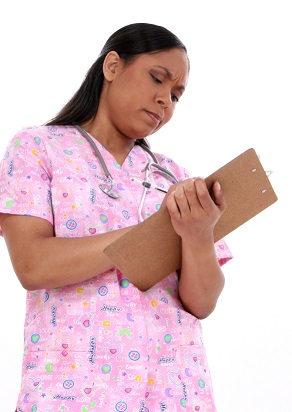 If your child has an eating disorder, or is in recovery, it is very important to “advocate” for his/her needs and find support for them within school. This is the first blog post of four, detailing Walden Behavioral Care’s school psychologist, Tarah Doyle, perspective on getting the help your child needs within the medical aspects of the transition. It is important to recognize the importance of continuously monitoring your child throughout the day, utilizing whatever medical professionals are in the school to keep track of your son/daughter’s needs.
If your child has an eating disorder, or is in recovery, it is very important to “advocate” for his/her needs and find support for them within school. This is the first blog post of four, detailing Walden Behavioral Care’s school psychologist, Tarah Doyle, perspective on getting the help your child needs within the medical aspects of the transition. It is important to recognize the importance of continuously monitoring your child throughout the day, utilizing whatever medical professionals are in the school to keep track of your son/daughter’s needs.
School Nurse
- Outpatient medical treatment typically involves the monitoring and treatment of physiological status (e.g., electrolyte levels, weight, vital signs, and medications).
- While your primary care physician (PCP) oversees medical monitoring, it may be helpful to have the school nurse involved. This individual may distribute medications if necessary during the school day, and can be the point person if your child becomes symptomatic during the school day (i.e. dizziness, nausea, fatigue, etc.).
- If your child has medical complications that have resulted from their eating disorder, the school nurse may develop an Individualized Healthcare Plan (IHP) to evaluate medical risk and have a plan of action if your child demonstrates symptoms and/or medical complications associated with their eating disorder diagnosis.
(IHPs can also be developed for individuals with severe food allergies among other medical diagnoses.)
Physical Education/Health Teacher/Coaches
- If your adolescent’s goal is weight restoration it may be necessary to put them on exercise restriction. In such cases, your child may need to be excused from physical education class until weight is restored, or until their PCP clears them for activity.
- Once your child is cleared for exercise, it may still be helpful to inform the physical education teacher if your child has a history of over-exercising. This individual may help to monitor that your child isn’t ‘over doing’ it in gym class or sports.
- Regarding health class—many health curriculums highlight the risks of obesity and place emphasis on healthy eating. Depending on where your child is at in their treatment, it may not be appropriate to have them participate in the viewing of movies like “Supersize Me” or to keep a food/activity journal for class.
The links to the other posts will become available as we post them.
About the author
Tarah Doyle, Psy.D., is the lead clinician in the Adolescent Intensive Outpatient Program at Walden’s Worcester clinic. Tarah is a licensed school psychologist who earned her MA/CAGS and her Doctorate in Psychology from the Massachusetts School of Professional Psychology. Tarah has worked with children ranging in age from 2-18 years old, but has a fondness for working with adolescents. Tarah currently utilizes family-based therapy to help adolescents recover from their eating disorders with the support of their families.






